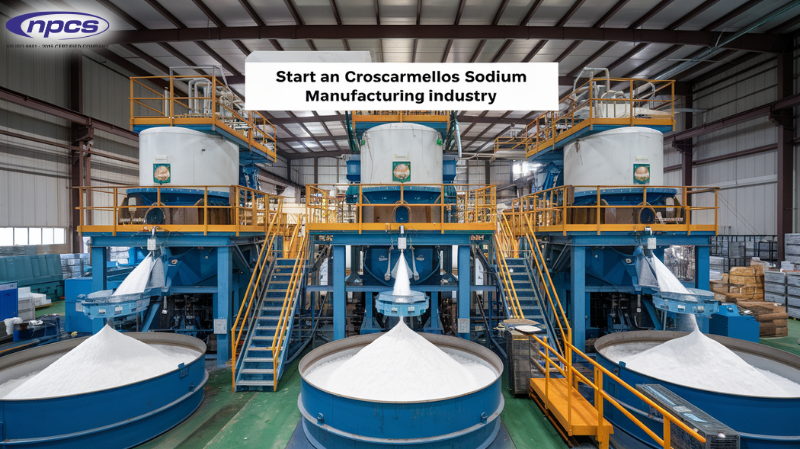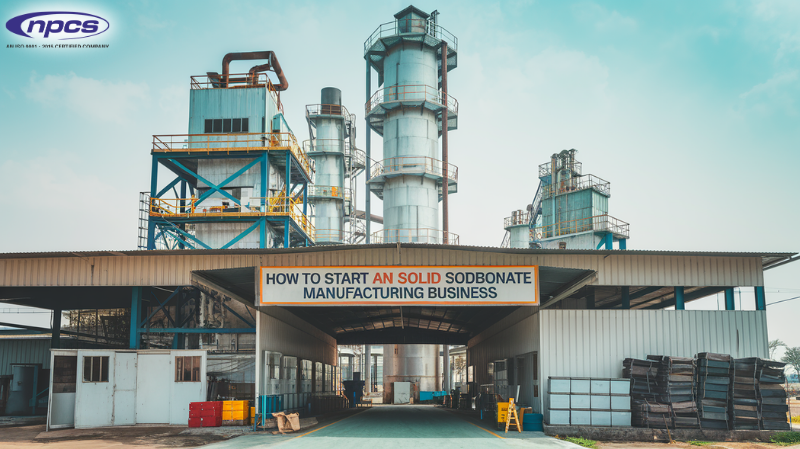Croscarmellose sodium (CCS) is a highly effective disintegrant that is widely employed in the development of pharmaceutical dosage forms. Croscarmellose Sodium plays a crucial role in breaking down tablets for better absorption. Its chemical makeup includes sodium carboxymethyl cellulose molecules. While it resists dissolution in water, it swells to absorb it effectively. This swelling facilitates the quick disintegration of tablets. Manufacturers and pharmaceutical companies recognize Croscarmellose Sodium for its good safety profile in various applications. They commonly use it in oral solid dosage forms, such as tablets and capsules. Additionally, consumers can find it in dietary supplements and other medications. The global pharmaceutical industry has seen a rising demand for excipients, making Croscarmellose Sodium vital for the production of pharmaceutical products. Its increasing demand mirrors the growth of the pharmaceutical sector.
What is Croscarmellose Sodium?
Croscarmellose Sodium is an excipient approved by the FDA to facilitate the breakage of tablets once they encounter moisture, which is found within the body. Plants produce cellulose, which is chemically processed to enable it to easily adhere to and break apart tablets in Croscarmellose Sodium.
CCS is primarily restricted to oral solid dosage forms of tablets and capsules . Its main purpose is to disintegrate and dissolve the drugs in order for them to be bioavailable within the body. This characteristic is what averts CCS in the formulation of fast acting drugs.
Applications of Croscarmellose Sodium
The Suitable Applications of Croscarmellose Sodium in Various Industries
- Pharmaceuticals: CCS primary activity as an excipient is in tablets and capsules as a disintegrant aiding the dissolution and subsequent release of the active pharmaceutical ingredient (API) in a timely manner.
- Dietary Supplements: Incorporating CCS in these types of products helps break down the tablet or capsule, allowing better uptake of vitamins and minerals.
- Food Industry: The food sector mainly uses croscarmellose sodium as a stabilizer and thickener, even though the pharmaceutical field primarily intends the product.
- Cosmetics: Other products, including cosmetics, can equally contain it to assist in the stabilization of the products.
Join Us : Niir Projects Consultancy Services
Niir Projects Consultancy Services
Why Start a Croscarmellose Sodium Manufacturing Industry?
There are extensive uses for Croscarmellose Sodium as the global demand for pharmaceuticals continues to grow, and thus the need for quality excipients is always present. The most appealing aspect of venturing into a CCS manufacturing business is that there is high demand, profitability, and growth potential. Below are the benefits that you should consider starting Croscarmellose Sodium manufacture:-
High Market Demand
The future of the pharmaceutical business is bright and developing, horizontally and vertically, on all continents. Certainly, as more and more people become reliant on tablets and capsules, there is bound to be a rising trend of disintegrants, and thus CCS, among pharmaceutical companies’ customers. This means that there will be a large market for such a product, especially coming from the pharmaceutical sector.
Essential Excipient
Pharmaceutical manufacturers must meet specific production requirements, which include using industry-accepted excipients such as CCS. The critical role of Croscarmellose Sodium in most drugs ensures that the demand for high-quality CCS will persist.
Profitability
Croscarmellose Sodium attracts relatively cheap production charges while the demand in the market remains high. Due to the broad application of its products in many forms of medicines and more especially tablets, establishing a business dealing on the manufacture of CCS is a bound to be a high back in business
Growing Pharmaceutical Industry
The global pharmaceutical industry is projected to grow at a steady rate, with an increased focus on generic drugs, over-the-counter medications, and supplements. This ensures that the demand for CCS will continue to grow in the foreseeable future.
Production Process of Croscarmellose Sodium
To make Croscarmellose Sodium first cellulose undergoes chemical modification, cross-linking and then drying. A detailed description of the preparation is provided below:
Materials Needed
- Cellulose: The major raw ingredient for Croscarmellose sodium is cellulose which is a polysaccharide obtained from cotton or wood pulp.
- Sodium Hydroxide (NaOH): Applied during the alkalization step in order to introduce reactivity into the cellulose.
- Sodium Monochloroacetate: Used for reaction with sodium carboxymethylcellulose, which is the product of substituting some hydroxyl groups of the alkalized cellulose with carboxymethyl groups in polymer chain of the cellulose.
Preparation Process
- Alkalization: Cellulose was combined with NaOH to make alkali cellulose dispersion.
- Etherification: Sodium monochloroacetate was incorporated into the alkali cellulose dispersion to yield sodium carboxymethyl cellulose.
- Cross-Linking: Carboxymethyl cellulose is chemically cross-linked to give modified Croscarmellose Sodium, which is better at swelling and disintegrating than the parent CMC.
- Purification and Drying: Afterward the whole product was cleaned, filtered and dried to remove the impurities leading to the final powder form of Croscarmellose sodium.
- Milling and Sieving: The manufacturers grind and refine the dried CCS to achieve a compatible particle size for marketing purposes.
Feasibility reports on: Soda Ash
Machinery Required for CCS Manufacturing
In the production of Croscarmellose Sodium, the below listed equipment is required:
- Reactors: For the purpose of carrying out the chemical reactions in the production process.
- Mixing Equipment: To mix the ingredients such as cellulose, sodium hydroxide, and sodium monochloroacetate.
- Drying Equipment: Industrial dryers like fluid bed dryers that remove moisture content in the finished product.
- Milling Machine: In order to powder and reduce the finished product into a manageable particle size.
- Sieve: Used to separate or control the particle size distribution of a powder, by using screens.
- Packing Equipment: In order to Media the finished products for sale.
Benefits of Starting a Croscarmellose Sodium Manufacturing Business
- Great Demand and Optimal Market Condition: As the economy continues expanding, the pharmaceutical industry will always need CCS, more so in tablets and capsule forms.
- Economy Of Scale:Manufacturers can mass-produce CCS cheaply and easily because it does not involve complex organisms.
- Wide Range Of Potential Consumers:Pharmaceutical companies primarily market CCS, but health and beauty industries, as well as some food markets, also sell and utilize this product.
- Raw material for production of Cc: Cc is biosourced raw material from cellulose which is sustainable. This corresponds to the current shift in manufacturing to green manufacturing.
Growth Potential of the CCS Industry
It is anticipated that the global Croscarmellose Sodium market will witness a sustained rise backed by growing pharmaceutical manufacturing as well as the application of effective disintegrants in tablets and capsules. There is a growing demand for generic medicines and over-the-counter (OTC) drugs. The market for contract manufacturing services (CCS) is projected to see significant growth. Establishing a CCS factory creates opportunities within local markets. Additionally, a CCS factory enables you to reach foreign markets. Expanding your global presence enhances your business potential.
Conclusion
Croscarmellose Sodium is significant in the composition of most pharmaceutical products which presents great potential for the manufacturers. The market for Croscarmellose Sodium is experiencing high demand. Its low production cost makes it an appealing business opportunity. It is utilized across various industries. Starting a production business in this area can be very beneficial. Adhering to regulatory requirements is essential for achieving success. Having the right infrastructure and identifying clients are key for growth. The pharmaceutical industry continues to show a steady upward trend. Manufacturers have a great chance for expansion and success. There is a growing demand for quality excipients like Croscarmellose Sodium. The potential for growth in this sector looks strong and promising.





